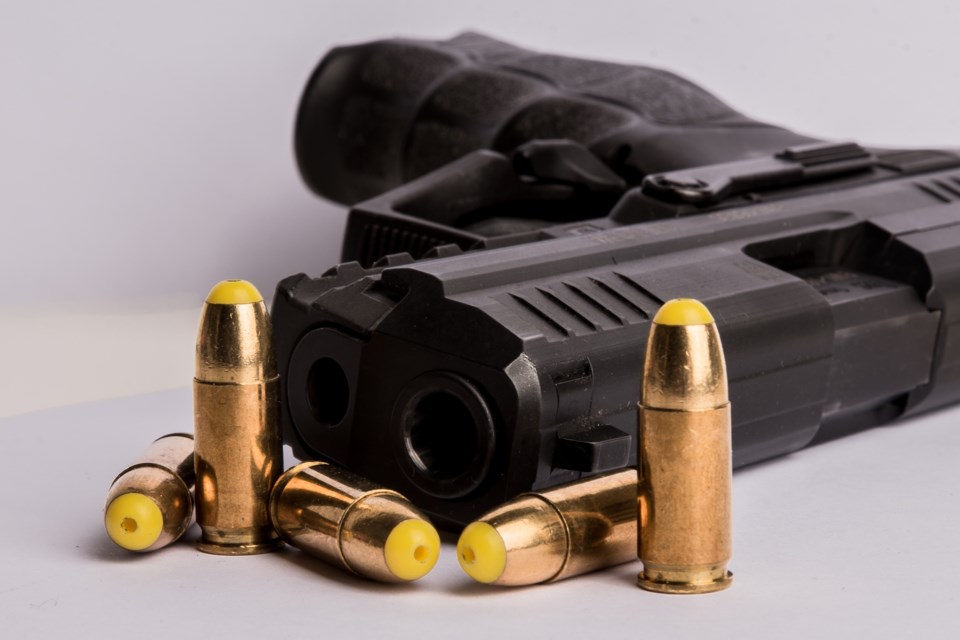NEWS RELEASE
MICHIGAN ATTORNEY GENERAL
*************************
LANSING - Michigan Attorney General Dana Nessel on Thursday testified before the Senate Civil Rights, Judiciary, and Public Safety Committee in support of Senate Bills 471 & 472, which would prevent people convicted of domestic violence misdemeanors from possessing or owning a firearm for eight years following their conviction. She was joined by the lead attorney of the Sexual Assault and Domestic Violence Unit, Danielle Bennetts, Division Chief, Criminal Trials and Appeals, Danielle Hagaman-Clark, and Acting Chief Legal Counsel, Linus Banghart-Linn.
“As a long-time prosecutor and defense attorney, I have handled hundreds of cases involving abuse against intimate partners. There is a clear, undeniable, and deadly connection between domestic violence and firearms,” said Nessel.
“The available statistics are shocking, and I am infuriated that thousands of Michigan residents are targeted each year by the scourge of senseless, preventable gun violence in our state. This common-sense measure is long overdue and will undoubtedly save lives.”
Statistics provided by Everytown for Gun Safety highlight the deadly intersection of domestic violence and firearms:
- Abusers with firearms are five times more likely to kill their female victims than abusers without firearms;
- Every month, an average of 70 people are shot and killed by an intimate partner; and
- Nearly 1 million women alive today have reported being shot or shot at by intimate partners, and over 4.5 million women have reported being threatened with a gun by an intimate partner.
The study also found that “while the deadly intersection of guns and intimate partner violence affects all women, it has a disproportionate impact on women of color as well as pregnant and postpartum women. In addition, “segments of the LGBTQ+ community and people with disabilities are highly vulnerable to severe forms of relationship abuse.”
Thirty-three other states and the District of Columbia have enacted similar laws. They are Alabama, Arizona, California, Colorado, Connecticut, Delaware, Hawaii, Illinois, Indiana, Iowa, Kansas, Louisiana, Maine, Maryland, Massachusetts, Minnesota, Nebraska, Nevada, New Jersey, New Mexico, New York, Oregon, Pennsylvania, Rhode Island, South Carolina, South Dakota, Tennessee, Texas, Utah, Vermont, Virginia, Washington, Washington D.C., and West Virginia.
“I have met with dozens of victim advocacy groups, child advocacy centers, and law enforcement agencies everywhere from the Upper Peninsula to the southern corners of the state. Common-sense measures like this have widespread support,” said Nessel. “In each visit, I am reminded of the importance of addressing the gaps in Michigan law that allows domestic abusers to have access to firearms.”
Attorney General Nessel has been a vociferous voice calling for gun safety measures, including advocating for a federal restriction on handgun sales to individuals under the age of 21, increased accountability for manufacturers, efforts to remove ghost-guns from our streets, and banning firearms from the Capitol and other state facilities.
Earlier this year, she testified before the Michigan Senate in support of gun safety legislation that expanded background checks, established safe storage guidelines, and created a process for Extreme Risk Protection Orders.
Yesterday, the Department launched the Address Confidentiality Program to help shield victims' physical addresses from their abusers. Nessel has been an outspoken advocate for House Bills 4738 and 4739, also known as the Starkisha Thompson Victim & Witness Privacy Legislation, which will shield victim and witness personal information in police reports from being provided to defendants and defense counsel.
The Department is also home to the Michigan Human Trafficking Task Force, which has provided training to over 1,000 professionals on how to identify and investigate trafficking cases, and continues to work with the legislature on a 26-bill package aimed at expanding protections for victims of trafficking, strengthening tools to hold traffickers accountable, and revising the criminal justice system’s approach to commercial sexual activity.
*************************



